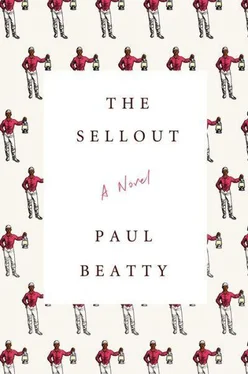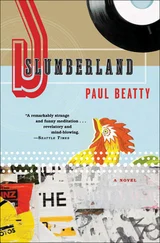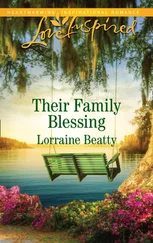“Dad, you painted Barbie black.”
“I wanted to maintain the beauty threshold. Establish a baseline of cuteness so that you couldn’t say one doll was prettier than the other.”
Plantation Barbie had a string coming out of her back. I pulled it. “Math is hard, let’s go shopping,” she said in a squeaky singsong voice. I set the black heroes back down in the kitchen table swamp, moving their limbs so that they resumed their runaway poses.
“I’m down with Ken and Barbie.”
My father lost his scientific objectivity and grabbed me by the shirt. “What? Why?” he yelled.
“Because the white people got better accessories. I mean, look. Harriet Tubman has a gas lantern, a walking stick, and a compass. Ken and Barbie have a dune buggy and speedboat! It’s really no contest.”
The next day my father burned his “findings” in the fireplace. Even at the junior college level it’s publish or perish. But more than the fact he’d never get a parking space with his name on it or a reduced course load, I was a failed social experiment. A statistically insignificant son who’d shattered his hopes for both me and the black race. He made me turn in my dream book. Stopped calling my allowance “positive reinforcement” and began referring to it as “restitution.” While he never stopped pushing the “book learning,” it wasn’t long after this that he bought my first spade, pitchfork, and sheep-shearing razor. Sending me into the fields with a pat on the tush and Booker T. Washington’s famous quote pinned to my denim overalls for encouragement, “Cast down your bucket where you are.”
* * *
If there is a heaven worth the effort that people make to get there, then I hope for my father’s sake there’s a celestial psychology journal. One that publishes the results of failed experiments, because acknowledging unsubstantiated theories and negative results is just as important as publishing studies proving red wine is the cure-all we’d always pretended it was.
My memories of my father aren’t all bad. Though technically I was an only child, Daddy, like many black men, had lots of kids. The citizens of Dickens were his progeny. While he wasn’t very good with horses, he was known around town as the Nigger Whisperer. Whenever some nigger who’d “done lost they motherfucking mind” needed to be talked down from a tree or freeway overpass precipice, the call would go out. My father would grab his social psychology bible, The Planning of Change , by Bennis, Benne, and Robert Chin, a woefully underappreciated Chinese-American psychologist my dad had never met but claimed as his mentor. Most kids got bedtime stories and fairy tales; I had to fall asleep to readings from chapters with titles like “The Utility of Models of the Environments of Systems for Practitioners.” My father was nothing if not a practitioner. I can’t remember a time when he didn’t bring me along on a nigger whisper. On the drive over he’d brag that the black community was a lot like him — ABD.
“All but dissertation?”
“All but defeated.”
When we arrived, he’d sit me on the roof of a nearby minivan or stand me atop an alleyway Dumpster, hand me a legal pad, and tell me to take notes. Among all the flashing sirens, the crying and broken glass crunching softly under his buckskin shoes, I’d be so scared for him. But Daddy had a way of approaching the unapproachable. His face sympathetic and sullen, palms turned up like a dashboard Jesus figurine, he’d walk toward some knife-wielding lunatic whose pupils were dilated to the size of atoms smashed by a quart of Hennessy XO and a twelve-pack light-beer chaser. Ignoring the bloodstained work uniform caked in brain and fecal matter, he’d hug the person like he was greeting an old friend. People thought it was his selflessness that allowed him to get so close, but to me it was his voice that got him over. Doo-wop bass deep, my father spoke in F-sharp. A resonant low-pitched tone that rooted you in place like a bobby-socked teenager listening to the Five Satins sing “In the Still of the Night.” It’s not music that soothes the savage beast but the systematic desensitization. And Father’s voice had a way of relaxing the enraged and allowing them to confront their fears anxiety-free.
When I was in grade school, I knew from how the taste of the pomegranates would bring you to tears, from the way the summer sun turned our Afros blood-orange red, and from how giddy my father would get whenever he talked about Dodger Stadium, white Zinfandel, and the latest green flash sunset he’d seen from the summit of Mount Wilson that California was a special place. And if you think about it, pretty much everything that made the twentieth century bearable was invented in a California garage: the Apple computer, the Boogie Board, and gangster rap. Thanks to my dad’s career in nigger-whispering, I was there for the birth of the latter, when at six o’clock on a cold, dark ghetto morning two blocks down from where I live, Carl “Kilo G” Garfield, hallucinating high on his own supply and Alfred Lord Tennyson’s brooding lyricism, burst out of his garage squinting into his Moleskin, a smoldering crack pipe dangling from fingertips. It was the height of the crack rock era. I was about ten when he clambered into the bed of his tricked-out, hot-rod yellow Toyota pickup truck, the TO and the TA buffed out and painted over so that the brand name on the tailgate read just YO, and began reciting his verse at the top of his lungs, the slurred iambic pentameter punctuated with gun claps from his nickel-plated.38 and pleas from his mama to take his naked ass inside.
THE CHARGE OF THE LIGHT-SKINNED SPADE
Half a liter, half a liter,
Half a liter onward
All in the alley of Death
Rode the Olde English Eight Hundred.
Forward, the Light-skinned Spade!
“Charge for the Bloods!” he said:
Into the alley of Death
Rode the Olde English Eight Hundred …
When the SWAT team finally arrived on the scene, taking cover behind patrol car doors and the sycamore trees, clutching their assault rifles to their chests, none of them could stop giggling long enough to take the kill shot.
Theirs not to reason what the fuck,
Theirs but to shoot and duck:
Niggers to the right of them
Niggers to the left of them,
Niggers in front of them
Partied and blundered
Bumrush’d at caps and hollow point shell
While hooptie and hoodlum fell
They that had banged so well
Came thro’ the jaws of Death
Back from the ho’s of Hell,
All that was left of them
Left of the Olde English Eight Hundred.
And when my father, the Nigger Whisperer — that beatific smile splashed across his face — eased his way past the police barricade, put a tweed-jacketed arm around the broken-down drug dealer, and spoke some whispered profundity into his ear, Kilo G blinked blankly like a stage-show volunteer struck dumb by an Indian casino hypnotist, then calmly handed over his gun and the keys to his heart. The police closed in for the arrest, but my father asked them to stay back, beckoning Kilo to finish his poem, even joining in at the end of each line, pretending he knew the words.
When can their shine and buzz fade?
Oh the buckwild charge they made!
All the motherfuckin’ world wondered.
Respect the charge they made
Respect the charge of the Light-skinned Spade
The noble now empty Olde English Eight Hundred.
The police vans and cruisers disappeared into the morning haze, leaving my father, godlike, alone in the middle of the street, reveling in his humanitarianism. Cockily, he turned toward me. “You know what I said to get that psychotic motherfucker to lower his gun?”
“What did you say, Daddy?”
Читать дальше












